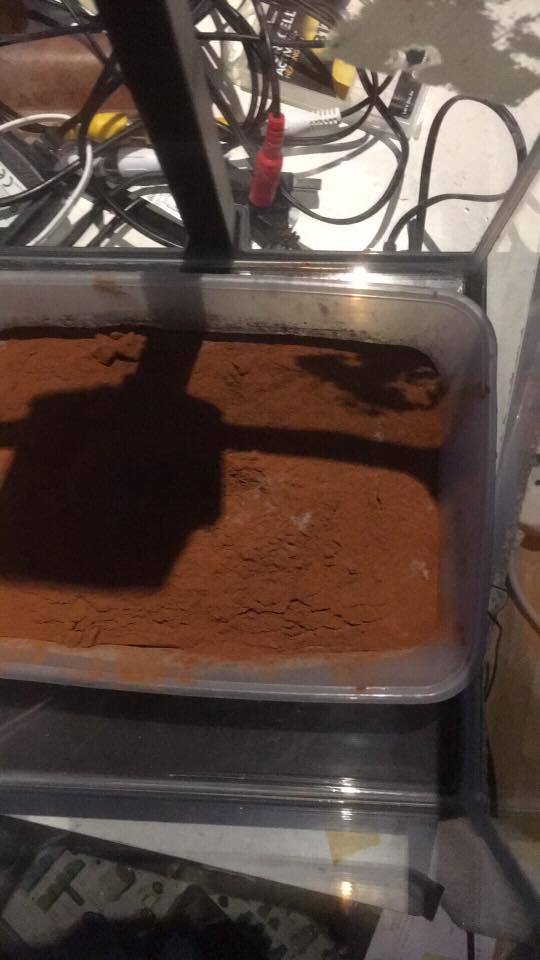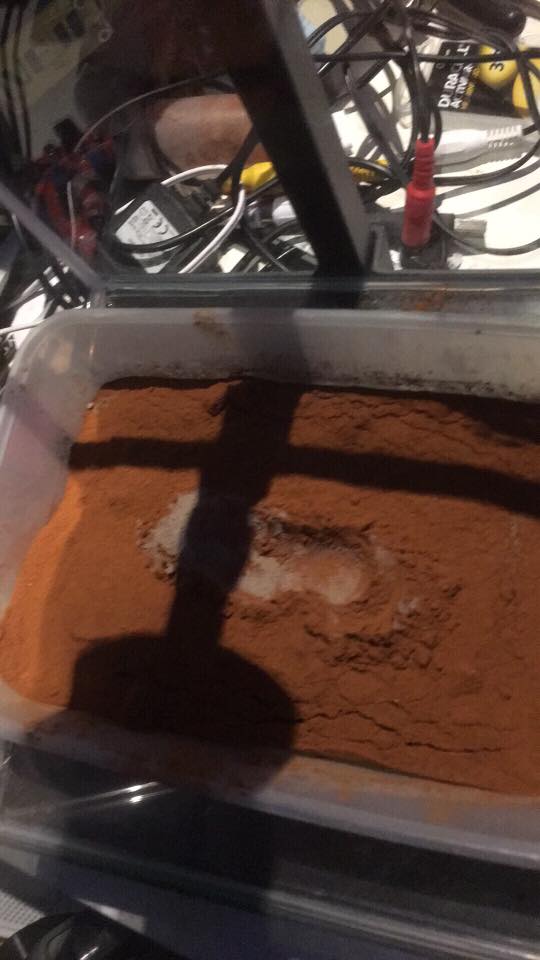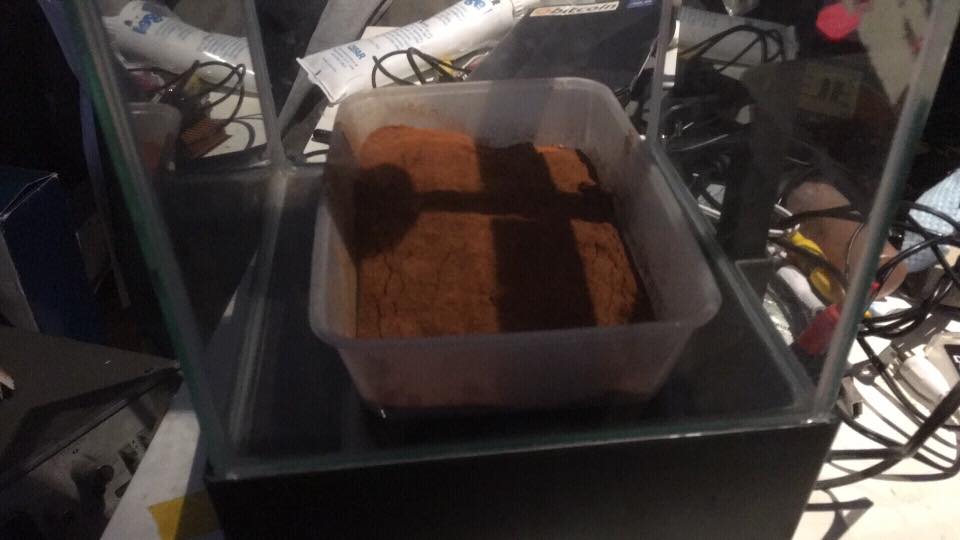Mars Habitation Project – part 1
Welcome to planet Mars!
Or at least a piece of it.
The soil turns red very fast, in less than a minute (pictures 2 and 3), when exposed to the Earth’s oxygen-rich atmosphere.
We don’t take any chances when working with homebrew extraterrestrial soil – so I’m all wrapped up in a protective hazmat suit. Don’t try this at home.
——–
Update Jan. 2018: 5 months into the experiment, we’ve still failed to grow anything in the “Martian” soil. Even live plants die within hrs or a couple of days.
Our next step is to dig deeper into the mystery, using a special microscope to observe live cells exposed to the synthetic Martian soil. (The microscope is on its way to our lab and is expected to arrive next week from the UK.)
By understanding how the chemicals affect living organisms at the cellular level, we might find a solution for future expeditions to the red planet to grow agricultural products needed for colonization.
After 1 day of experimentation, we’ve made several discoveries about the properties of Mars soil.
1. We thought the soil would be hydrophobic because it consists of several metallic components – but it’s the way around! When we closed the container, the humidity level was about 55%
After a little over 1 hour, the sensors showed 0% humidity. The soil is very hydrophilic. (Maybe that is why they find water trails on Mars but no liquids.)
2. The electric resistance is practically 0. The soil is highly conductive.
Since there are storms on Mars, there should be lightning – and if it struck the ground, the pulse would travel very far and electrocute everything and everybody within a several-mile radius.
It would also shortcut any electronic circuit if exposed to the soil. (I will test it tomorrow by putting an unshielded Arduino inside the container.)
— UPDATE: The Arduino microcontroller died instantly when exposed to the soil. —
3. It’s irritating – just a small amount got out of the container, and it’s still itching in my eyes when I go inside my workshop.
The part of my skin exposed to it is still itching, although I’ve washed it several times with soap, water, and even ethyl alcohol – and almost instantly after exposure.
4. Adding a small amount of LOX (Liquid Oxygen) to a small sample turned out to be explosive. The sample evaporated immediately after contact with LOX in an intensive flash.
Any leakage of liquid Oxygen would be catastrophic on planet Mars. Future astronauts – be careful.


